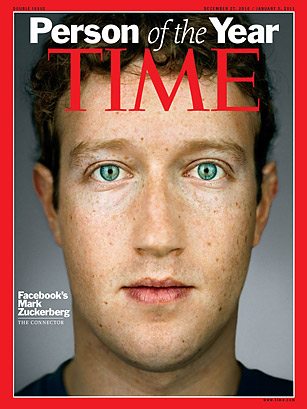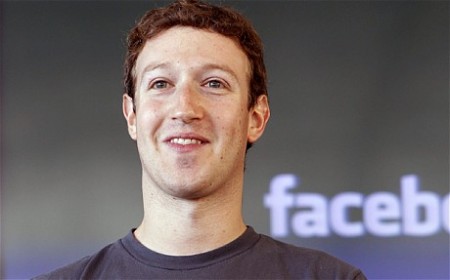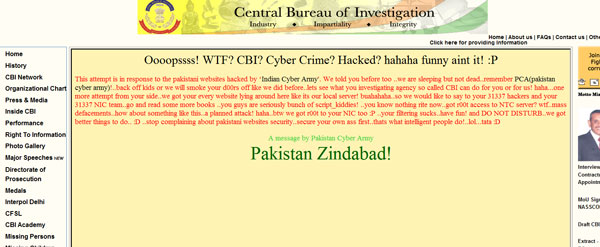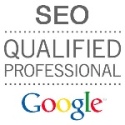 Probably the most widely used and known social networking site, Facebook has almost half of its users visit it every day. And some of its users spend an inordinate amount of time on Facebook, allowing the hours to while away unnoticed, the chores to go uncompleted, and even going so far as to ignore family and friends in the actual world.
Probably the most widely used and known social networking site, Facebook has almost half of its users visit it every day. And some of its users spend an inordinate amount of time on Facebook, allowing the hours to while away unnoticed, the chores to go uncompleted, and even going so far as to ignore family and friends in the actual world.
While “Facebook addiction” or “Facebook addiction disorder” are not medically approved terms, the reality of addictive behaviors on Facebook are a growing problem for many Facebook users, and one that therapists are seeing more frequently in their patients.
If you’ve found that connecting, sharing, and learning via Facebook has taken over all avenues of communicating and learning in your life, it’s possible that you’re suffering from Facebook addiction. And relax! This article isn’t about stopping your enjoyment of Facebook; rather, the aim here is to help you identify whether you’re using Facebook in an addictive way, and help you to find more constructive ways to connect socially via Facebook.
Step 1
Recognize the signs of a Facebook addiction. While there is currently no such thing as a medically blessed diagnosable “Facebook addiction” or “Facebook addiction disorder” that a health or medical professional could categorically state you’re suffering from, addictive behaviors have common threads that can lead to dysfunctional socializing and obsessive behaviors. The following signs indicate an unhealthy neediness for Facebook:
- You wake up and the first thing you do is “check Facebook”. And it’s the last thing you do at night.
- Nothing else thrills you or you feel “empty” without Facebook. All you want to do is spend time on Facebook, even to the exclusion of getting work done that needs to be done, or meeting family obligations. When not being on Facebook causes physical pain, sweats, illness and you’re champing at the leash to get back on it, your obsession has become an unhealthy one.
- You’re not able to go for more than a day without using Facebook. If forced to do so, you find yourself suffering from Facebook “withdrawal” symptoms, such as finding nothing else interesting, trying to find ways to get back to Facebook even if it means using a computer that is either out of bounds (for example, not yours), or difficult to get to, or you find yourself intensely worried about missing out on Facebook updates. These are all very unhealthy signs.
- Even if you’re not on Facebook constantly (indicating you need a reality check), checking it many times during the day is a sign of compulsive behavior. Spending more than an hour on Facebook a day will easily cut into all the other obligations you have in life and may cause social dysfunction problems.
- Your real life isn’t going so well and Facebook presents a fantasy escape life where everything seems unencumbered, neat, happy, and easy – all things that are the opposite of your everyday life.
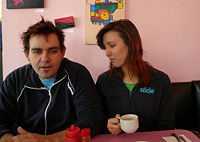 Adequate sleep ceases to be important to you. Instead, you’re prepared to stay up way too late just to be able to accommodate your Facebook neediness. After all, you excuse yourself, your friends might think it’s remiss of you not to be around!
Adequate sleep ceases to be important to you. Instead, you’re prepared to stay up way too late just to be able to accommodate your Facebook neediness. After all, you excuse yourself, your friends might think it’s remiss of you not to be around!- Nostalgia has you in its grip. When Facebook starts becoming a way through which you’re living in the past, it’s a sign of needing to break from it. Rehashing old loves and friendships with the hope that you can pinpoint the exact moment where your life should have taken a different turn and trying to patch it up through fantasizing over Facebook is looking backwards and beating yourself up over what didn’t work out. Realize the importance of living in the here and now. This type of nostalgia is even more damaging if you have a loose tongue about the relationships you’re actually in because other people will be reading your words and some may perceive them as a betrayal or as signs of an emotional affair.
- You have tons of friends on Facebook but you still feel very lonely.
—————————————————————————————————————————————-
Step 2
Start questioning what you’re doing on Facebook. Rather than simply going on Facebook and “falling under its spell”, start consciously determining what you’re really getting out of Facebook. Asking questions about its value to you in your own life’s context is healthy, especially when you feel that you might have been overdoing it a bit. Whittle down to the things that bring real value, within a defined time limitation. Record what you’re doing on Facebook for a week. Be diligent about this reality check task and don’t spare yourself; buy a small notebook and devote time to its updating. Things in particular to keep an eye out for include:
- If you’re just checking in to respond to pokes, to see friends updating their profiles, to write a new note, or to see what songs your friends are adding, you’re addicted to trivia. And letting trivia run your day is not conducive to a satisfying life long-term!
- Are you wandering about Facebook aimlessly? You’ve just confirmed a new friend, and you’re curious as to the friends of that friend and whether any are your friends, or could be your friends, and what those friends are doing? If this sounds all too familiar, you’re time on Facebook has turned aimless. And you’re being lulled into this by the connectivity ease of Facebook without being alert to the lack of productivity resulting.
- Are you excusing yourself because of work? Even someone using Facebook for business purposes can start allowing the business socializing to bleed into general socializing under the rubric of “work”. It’s important to notice when you’re falling into this transitional phase and to demarcate work and socializing, in order to put a time limit on both. Otherwise, you’re giving yourself too large a justification to just keep on keeping on Facebook.
- Is that friend really a friend? How beneficial is maintaining a friendship with someone you’ve never met but linked up just because they were a friend of a friend of a real friend of yours? They might be amazing but if they’re barely connecting with you, they might be part of the peripheral distractions that are causing you to sink into Facebook rather than interact on Facebook in ways that have true value.
- Is any of what you’re doing constructive either from a personal or a professional point of view? Be honest with yourself!3 Perhaps you need to revisit the purpose?
—————————————————————————————————————————————-
Step 3
 Decide what is of value on Facebook. Whatever the reason for being a part of Facebook, boundaries matter and knowing what is of value and what is not will help you to rein in poor online habits. Even a reason of wanting to ensure that your family is kept up-to-date of your interstate or overseas happenings can meander out of control if your concept of “family” expands. If you use Facebook for work and personal reasons, the value will probably be broader, but it is still important to define the value boundaries for work and personal time. When deciding upon what value you’re getting out of Facebook, consider the following:
Decide what is of value on Facebook. Whatever the reason for being a part of Facebook, boundaries matter and knowing what is of value and what is not will help you to rein in poor online habits. Even a reason of wanting to ensure that your family is kept up-to-date of your interstate or overseas happenings can meander out of control if your concept of “family” expands. If you use Facebook for work and personal reasons, the value will probably be broader, but it is still important to define the value boundaries for work and personal time. When deciding upon what value you’re getting out of Facebook, consider the following:
- Are you enjoying it? Is this enjoyment balanced with a whole range of other enjoyable pursuits in your life too?
- Do you feel obliged to respond to some people on Facebook even though you’d prefer not to?
- Which parts of Facebook really do improve your personal and professional life? It can be helpful to list these for clarity, and to clear some of the negativity and the trivia.
—————————————————————————————————————————————-
Step 4
 Try giving up Facebook for a specific event to see how you fare. This article is not advocating leaving Facebook entirely unless that’s the choice you feel you want to take. However, it can be very advantageous to choose a special event and to decide that for the duration of that event, that you will not use Facebook at all. You can even warn your other Facebook friends that this event is coming up but whatever you do, stick to it. For example, some Facebook users take summer vacation breaks, some take a break for a religious observance such as Lent, and some people take breaks when special family events such as a wedding or a birthday are coming up and they need to prepare, travel, be available for it, etc., without wanting to be distracted.
Try giving up Facebook for a specific event to see how you fare. This article is not advocating leaving Facebook entirely unless that’s the choice you feel you want to take. However, it can be very advantageous to choose a special event and to decide that for the duration of that event, that you will not use Facebook at all. You can even warn your other Facebook friends that this event is coming up but whatever you do, stick to it. For example, some Facebook users take summer vacation breaks, some take a break for a religious observance such as Lent, and some people take breaks when special family events such as a wedding or a birthday are coming up and they need to prepare, travel, be available for it, etc., without wanting to be distracted.
- Any well defined event carries significance for breaking a habit because they represent occasions during which you need to focus on other than yourself, whether it be faith, family, or some other important external matter. This can help to take you outside of any internal funk that has you glued to Facebook, as well as providing a set period during which you’ve promised yourself that you won’t use Facebook. During this break, reflect on your Facebook neediness and think through how to restore a more even-keeled approach to using Facebook.
- The good thing about telling your Facebook friends that you won’t be on for a bit is that you’ve just burned a bridge that will cause you to “lose face” if you do sneak on. Be strong and give them the reassurance that you’re one to keep your word.
—————————————————————————————————————————————-
Step 5
Target solutions to enable smarter, brighter usage of Facebook in the future. While you could quit Facebook, it’s probably far more productive, constructive, and socially useful to manage it and to put Facebook in its place in your life. Some of the positive solutions for healthy Facebook usage include (and you’ll think of others):
 Avoid fiddling with the periphery. Take a good look at your profile. Does it work for you or does it bother you? Changing a profile image over and over is a sign of worrying too much about your Facebook image. If the current image works, leave it be. If it bothers you, fix it right now, photo included. Why? Because once you fix it, be prepared to leave it alone for a long time. Keeping your profile stable will build trust in the online environment; not constantly trying to update it will spare you one more unnecessary fiddle on Facebook.
Avoid fiddling with the periphery. Take a good look at your profile. Does it work for you or does it bother you? Changing a profile image over and over is a sign of worrying too much about your Facebook image. If the current image works, leave it be. If it bothers you, fix it right now, photo included. Why? Because once you fix it, be prepared to leave it alone for a long time. Keeping your profile stable will build trust in the online environment; not constantly trying to update it will spare you one more unnecessary fiddle on Facebook.
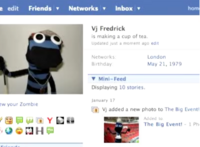 Stop changing your status frequently. Think “so what?” before attempting to do this. Every time you change it, it logs into your friends’ news feed on the home page and clogs it up. Why do you feel compelled to announce your every move or mood you are temporarily experiencing? It ceases to be of interest for others, and it’s more unnecessary fiddling for you! Without changing your status, it remains as is for a week and then resets to “What are you doing right now?” for you to say something.
Stop changing your status frequently. Think “so what?” before attempting to do this. Every time you change it, it logs into your friends’ news feed on the home page and clogs it up. Why do you feel compelled to announce your every move or mood you are temporarily experiencing? It ceases to be of interest for others, and it’s more unnecessary fiddling for you! Without changing your status, it remains as is for a week and then resets to “What are you doing right now?” for you to say something.- Think of how often you use Facebook applications. In order to use an application, you must install it on your account. And then use it; and many apps are compelling enough to draw users in for hours at a time. Before adding any application ask yourself “How productive is this?” If it is worthless, think about what it’s doing to your friends who get to be at the receiving end of your invitations to gain points, receive gifts, or to see results… Each time a person receives an invitation, they need to accept or ignore it. Don’t be the cause of other people’s fiddling. And make applications work for you, not the other way round; get rid of the ones that are sheer time-wasters or pointless.
- Present the most used applications on your profile and hide the rest. Even when hidden, the application can still be used. Clogging your profile with everything you have makes it unappealing to a person due to the clutter and is a hassle when a person has to scroll down to write on a wall or add an item on the bottom.
—————————————————————————————————————————————-
Step 6
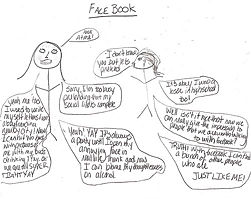 Be careful of the race to have as many friends as possible. If you’re driven to have more friends on Facebook than you can ever realistically engage with regularly, it’s important to stop what is, effectively, a “friendship addiction”. Having more friends than you can realistically connect with can be a source of anxiety rather than pleasure. Enjoy the friends you already have on Facebook but weed out those who aren’t adding anything to your Facebook experience.
Be careful of the race to have as many friends as possible. If you’re driven to have more friends on Facebook than you can ever realistically engage with regularly, it’s important to stop what is, effectively, a “friendship addiction”. Having more friends than you can realistically connect with can be a source of anxiety rather than pleasure. Enjoy the friends you already have on Facebook but weed out those who aren’t adding anything to your Facebook experience.
- Given that Facebook almost compels you to add friends, if you’re vulnerable to defining your self worth through the amount of friendships rather than the quality of them, then Facebook can be dangerous for you while you’re recovering from any other sort of addiction or going through emotionally difficult times. Resist the urge to add people you don’t really know or want to engage with, and to cull those who mean very little to you from your friends list.
- Beware of the potential of Facebook to increase a sense of loneliness rather than assuage it. Spending time on Facebook rather than with face-to-face friends will increase any feelings of loneliness you may already have and ironically, the more people you’re trying to keep apace with, the lonelier it’ll seem because you’ll end up with quantity rather than quality. Switch from using Facebook as a substitute for friendships to using it as a way to energize and synergize the friendships you already have.
—————————————————————————————————————————————-
Step 7
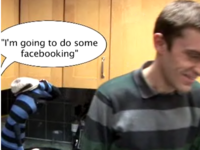 Avoid being a Facebook automaton. If you’re caught saying, “I’ll facebook you later” or “I’m going to do some facebooking”, then you’re well overdue for taking a break from the site to hang out with friends in the real world (or offline life). Every time you feel like saying “I’ll facebook you”, check yourself and rephrase that with “I’ll see you”, or “I’ll call you”. And mean it – settle the catch-up time straight away.
Avoid being a Facebook automaton. If you’re caught saying, “I’ll facebook you later” or “I’m going to do some facebooking”, then you’re well overdue for taking a break from the site to hang out with friends in the real world (or offline life). Every time you feel like saying “I’ll facebook you”, check yourself and rephrase that with “I’ll see you”, or “I’ll call you”. And mean it – settle the catch-up time straight away.
Post via http://www.wikihow.com







